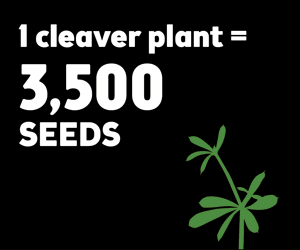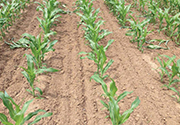| |
| |
| |
 |
|
MMMM d, yyyy |
|
| |
 The agriculture division of DowDuPont has announced the name of the intended company once it is spun-off, which is expected to happen by June 1, 2019. The intended agriculture company will become Corteva Agriscience, which is derived from a combination of words meaning "heart" and "nature."
» Read more...
The agriculture division of DowDuPont has announced the name of the intended company once it is spun-off, which is expected to happen by June 1, 2019. The intended agriculture company will become Corteva Agriscience, which is derived from a combination of words meaning "heart" and "nature."
» Read more...
Dr. Peter Sikkema and Dr. Darren Robinson, weed scientists at the University of Guelph, will be hosting an intensive course on herbicide activity (mode-of-action, selectivity, efficacy, crop injury) and weed identification in London, Ont., from Oct. 29 to Nov. 2, 2018.
» Read more...
The Canadian Agri-Business Education Foundation (CABEF) provides financial support to encourage young people to pursue an education in agriculture. CABEF awards six $2,500 scholarships annually to Grade 12 students enrolling in an agricultural university or college in Canada.
» Read more...
|
| |
 |
| |
|
| |
 Legume crops are unique in that they can fix much of their own nitrogen (N) requirements from the air to reduce or eliminate the need for N fertilizer. Legume crops form a relationship with living bacteria called rhizobium. Rhizobia bacteria live in association with legume plant roots to convert N from the air into useable N for the plant.
» Read more...
Legume crops are unique in that they can fix much of their own nitrogen (N) requirements from the air to reduce or eliminate the need for N fertilizer. Legume crops form a relationship with living bacteria called rhizobium. Rhizobia bacteria live in association with legume plant roots to convert N from the air into useable N for the plant.
» Read more... |
| |
 A growing body of research is helping point out the benefits of cover cropping. Laura Van Eerd, an associate professor in the school of environmental sciences at University of Guelph’s Ridgetown Campus, conducted a research program to look at how management practices (such as cover cropping) influence nitrogen availability and soil health. She is the corresponding author on a new study looking at the role of legume cover crops in maximizing nitrogen availability to corn.
» Read more...
A growing body of research is helping point out the benefits of cover cropping. Laura Van Eerd, an associate professor in the school of environmental sciences at University of Guelph’s Ridgetown Campus, conducted a research program to look at how management practices (such as cover cropping) influence nitrogen availability and soil health. She is the corresponding author on a new study looking at the role of legume cover crops in maximizing nitrogen availability to corn.
» Read more... |
| |
|
| |
|
|
| |
| |




